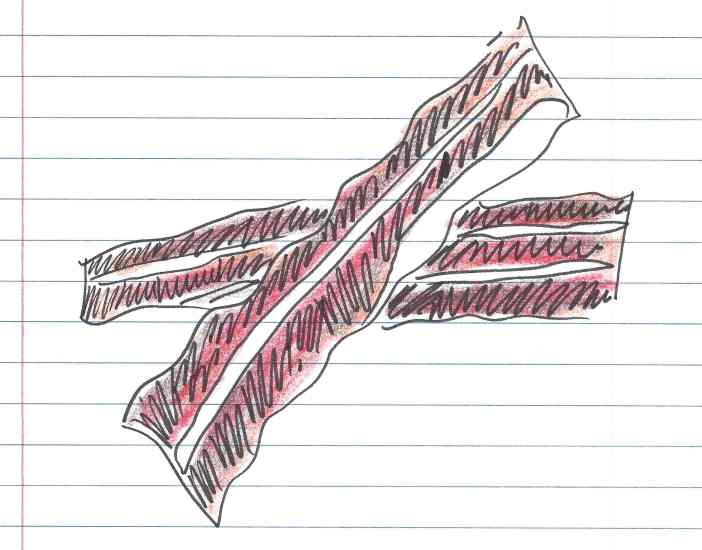Last week, the World Health Organization (WHO) caused many to flinch about flitch when it declared bacon and other processed meats carcinogenic. The actual report, of course, is more complicated than just that – unlike the etymology of bacon, which is fairly straightforward, even if a bit backwards, shall we say.

Bacon
English has been enjoying bacon since the early 1300s, naming fresh and especially cured flesh from the backs and sides of pigs. In the US, a strip of bacon is typically meat from the belly, but the back cuts fried up in many other cultures’ kitchens gives us an important taste of the word’s roots.
Bacon comes into English from the Old French bacon, perhaps via the Medieval Latin bacō. From here, historical linguists find cognates in other Germanic languages, stripping the word from the Proto-Germanic *bakon-, which is ultimately cognate with English’s own “back.”
Cut as it is from the pig, this back-y bacon has thus been associated more generally with the body, à la skin or hide, yielding expressions such as to save one’s bacon and to sell one’s bacon.
Now, bacon-maniacs might turn to some 17th-century bacon-wrapped insults to express their feelings on the WHO’s report: bacon-brains, bacon-fed, and bacon–slicer all once denigrated rustic simpletons, the Oxford English Dictionary records. The meat, so it goes, was once a key foodstuff for peasants.
And it is this very connection – that cured pork was really the only meat available to most families in the Middle Ages – that has led to one common origin story for the expression bring home the bacon. Rewards for marital devotion in 12th-century England, greased-pig contests, the luxury of pork in early colonial America? These are other explanations, but Michael Quinion, among others, notes that the first evidence of the expression comes in 1906 in reference to a famous boxing match.
Whatever the particular origins of bringing home the bacon, one thing’s for sure: for bacon-lovers, the WHO has issued some fighting words.